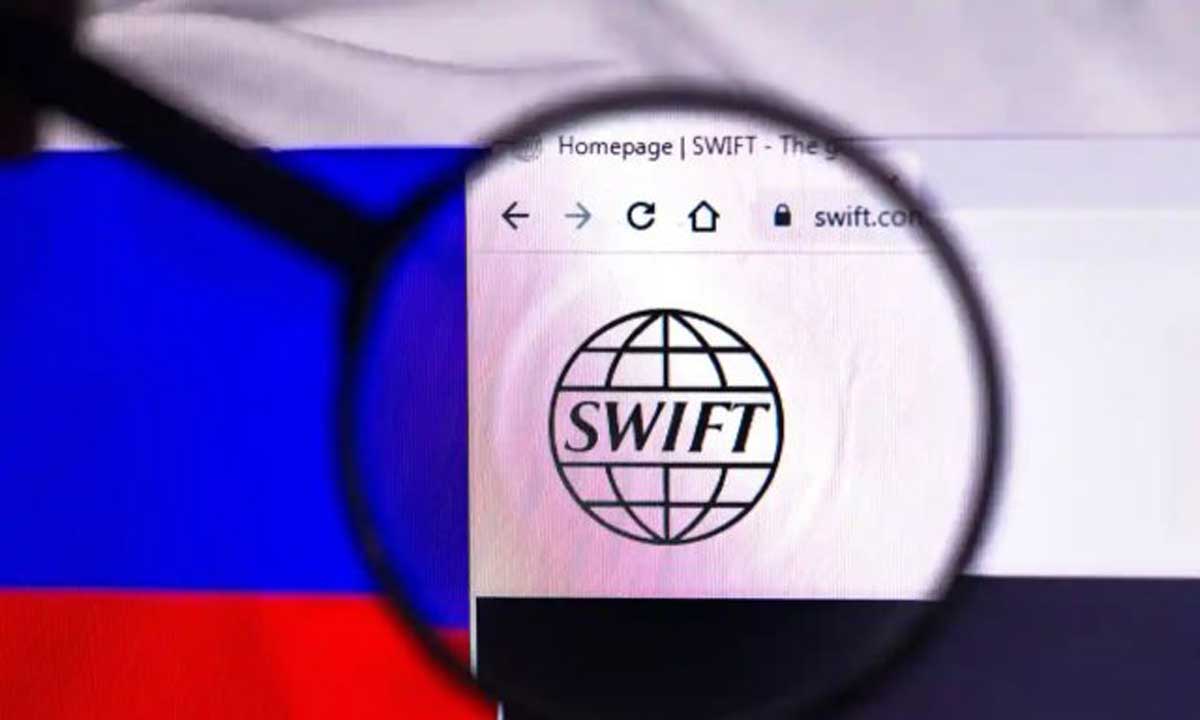Russia’s invasion of Ukraine has increased pressure to tighten economic sanctions against Moscow. Brussels, London and Washington have already introduced tough measures to hit the Russian economy, writes The Guardian.
However, Britain wants one more thing – the exclusion of Russia from SWIFT – the world’s main network for international payments. London’s goal is to seriously influence Russian trade and seriously interfere with the business of Russian companies.
The Czech Republic also insists on the exclusion of the Russian Federation.
What is SWIFT?
SWIFT is the Society for Worldwide Interbank Financial Telecommunications (SWIFT). It is the primary secure messaging system that banks use for fast and secure cross-border payments, enabling seamless international trade.
The network is currently used by more than 11,000 financial institutions to send secure messages and payment orders. Without a recognized alternative, this system is essential to global finance.
Over the years, SWIFT has become the main mechanism for financing international trade. In 2020, about 38 million transactions were sent through the platform daily. This facilitates transactions worth trillions of US dollars.
Who owns SWIFT?
SWIFT was founded in the 70s of the last century and is actually a cooperative of thousands of institutions and countries using the service. The Belgian-based system remains neutral in trade disputes.
Why is the ban on excluding Russia from SWIFT really serious?
British Prime Minister Boris Johnson stressed that this would cause the greatest damage to the Russian economy. And this is true, because normal transactions will have to go directly between banks or go through new competing systems. This, in turn, increases costs and creates delays.
The removal of Russia from SWIFT would prevent financial institutions from sending money in or out of the country, which would come as a sudden shock to Russian companies and their foreign clients, especially buyers of US dollar-denominated oil and natural resources.
Why doesn’t the US want to exclude Russia?
One reason is that the impact on Russian business may not be as severe. The head of a major Russian bank, VTB, recently said he could use other payment channels such as smartphones, messaging apps, or even email.
Russian banks can also route payments through countries that have not imposed sanctions, such as China, which has created its own payment system to compete with SWIFT.
Russia’s ban on the use of SWIFT could speed up the use of China’s competing Cips system. There are also concerns that it could hurt the US dollar’s status as the world’s reserve currency and speed up the use of alternatives like cryptocurrencies.
Moscow has taken other steps in recent years to soften the blow in the event of a power outage. Russia created its own SPFS payment system after the West imposed sanctions on it in 2014 following the annexation of Crimea. Currently, SPFS has about 400 users, according to the Central Bank of Russia. 20 percent of local bank transfers currently go through SPFS, but volume is still limited.
If Russia is excluded from SWIFT, will it affect other countries?
The administration of US President Joe Biden believes so. According to the US, the exclusion of the Russian Federation can harm the Western world no less than Russian companies.
Russia is a major buyer of foreign goods, especially goods made in the Netherlands and Germany. Russia is still the main supplier of crude oil, natural gas and solid fossil fuels to the EU. It can be difficult for European countries to find substitute suppliers.
Is SWIFT linked to economic sanctions?
In the past, the global payment system has strongly resisted calls to ban certain countries, calling itself neutral. However, in 2012, the European Union banned the network from serving Iranian companies and individuals subject to sanctions in connection with Tehran’s nuclear program. Thus, a precedent was created for the current actions against Russia. However, they still don’t exist.

